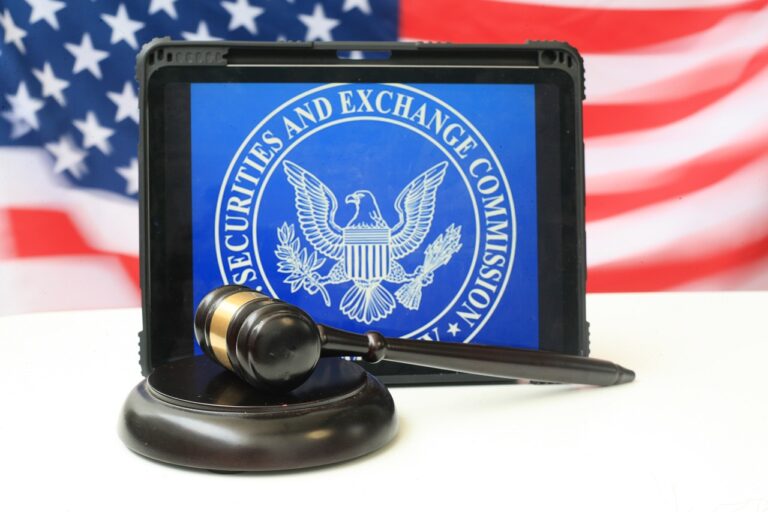In the rapidly evolving landscape of cryptocurrency regulation (or as many in the crypto community would argue, “regulation by enforcement”), Judge Analisa Torres’ ruling on 13 July 2023 in the SEC vs. Ripple case has had many crypto investors feeling bullish.
However, in a surprising turn of events, a federal judge has dismissed the relevance of this ruling in a separate case involving Terraform Labs, sending shockwaves through the crypto community and raising alarm bells for holders of XRP, ADA, SOL, and many other altcoins.
According to an article by The Block, Terraform Labs and its founder, Do Kwon, are currently facing an enforcement case brought by the Securities and Exchange Commission (SEC). In their defense, Terraform argued that the recent split decision in the SEC’s case against Ripple Labs invalidated the agency’s case against them. However, Judge Jed S. Rakoff of the U.S. District Court for the Southern District of New York rejected this argument, allowing the civil case against Terraform and Kwon to proceed.
Judge Rakoff dismissed the notion of drawing a distinction between coins based on their manner of sale, a stance that directly contradicts the approach adopted by another judge in the Ripple case. He emphasized that the law does not support the idea that a coin sold directly to institutional investors is considered a security, while the same coin sold through secondary market transactions to retail investors is not.
Judge Rakoff wrote:
“It may also be mentioned that the Court declines to draw a distinction between these coins based on their manner of sale, such that coins sold directly to institutional investors are considered securities and those sold through secondary market transactions to retail investors are not. In doing so, the Court rejects the approach recently adopted by another judge of this District in a similar case.“
Judge Rakoff also dismissed Terraform’s invocation of the major questions doctrine, a legal argument gaining traction in the industry, as a reason to dismiss the SEC’s case. He argued that the cryptocurrency industry, while important, does not bear the vast economic and political significance required to invoke this doctrine.
He wrote:
“Because the doctrine is reserved for the most extraordinary cases where the agency claims broad regulatory authority and the area to be regulated is one invested with particular economic and political significance, it has been rarely invoked … With this standard in mind, the crypto-currency industry – though certainly important – falls far short of being a ‘portion of the American economy’ bearing ‘vast economic and political significance.’”
Furthermore, Judge Rakoff argued that limiting the SEC to regulating only investment products that label themselves as securities would be contrary to Congress’s intent in passing current securities laws. He concluded that there is no indication that Congress intended to hinder the SEC’s ability to resolve new and challenging questions posed by emerging technologies impacting markets that resemble securities markets.
Yesterday’s ruling in the Terraform Labs case is concerning for holders of other cryptocurrencies, including XRP, ADA, and SOL. The reason is that Judge Rakoff’s dismissal of the Ripple precedent suggests that the SEC may have broader authority to regulate cryptocurrencies than previously thought.
In the Ripple case, the judge ruled that XRP itself is not a security, but it can be part of a security offering. This ruling was seen as a significant win for the crypto industry as it suggested a more nuanced approach to crypto regulation, where the nature of the token could change depending on the context of its sale.
However, Judge Rakoff’s dismissal of this precedent in the Terraform Labs case suggests a more rigid approach. He stated that he declines to draw a distinction between coins based on their manner of sale. This could imply that any token, regardless of how it’s sold or used, could potentially be classified as a security and fall under the SEC’s jurisdiction.
This interpretation could have significant implications for other cryptocurrencies like ADA and SOL. If the SEC decides to pursue cases against the entities behind these tokens, they may not be able to rely on the Ripple precedent to argue that their tokens are not securities. This could potentially lead to stricter regulation and enforcement actions, which is likely to be a cause for concern for holders of these tokens.
Despite the setback, Terraform managed to score a minor victory in a separate court. A federal bankruptcy judge allowed a subpoena of wallets and account information from FTX, relating to potential short sellers of Terra/Luna, to proceed. Terraform maintains that this information will aid their defense against an SEC claim that Terraform conspired with Jump Trading to prop up the price of UST in 2021, a year before its collapse.
Featured Image Credit: Photo by sergeitokmakov via Pixabay









